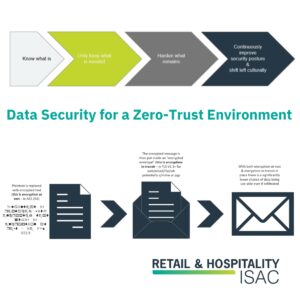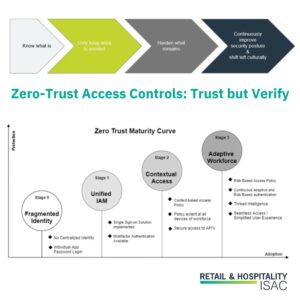Data Security for a Zero-Trust Environment
Based on the pillars discussed in the earlier series posts, nothing changes when approaching data security – we start with knowing what is – at a minimum, organizations need to identify and categorize sensitive, regulated, operationally critical data, etc. Data Labeling and the Categorization of Critical Data Types This process will involve mapping all the…
Read More



